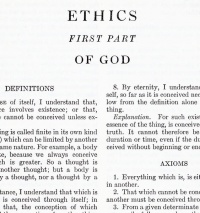Biblical criticism
From The Art and Popular Culture Encyclopedia

|
Related e |
|
Featured: |
Biblical criticism is "the study and investigation of biblical writings that seeks to make discerning and discriminating judgments about these writings." Harper's Bible Dictionary). It asks when and where a particular text originated; how, why, by whom, for whom, and in what circumstances it was produced; what influences were at work in its production; what sources were used in its composition and the message it was intended to convey. It also addresses the physical text, including the meaning of the words and the way in which they are used, its preservation, history and integrity. Biblical criticism draws upon a wide range of scholarly disciplines including archaeology, anthropology, folklore, linguistics, oral tradition studies, and historical and religious studies.
See also
- Gospel harmony
- Pentateuchal criticism
- Biblical studies
- The Bible and history
- Biblical archaeology
- Historical method
- Heresy in the 20th century
- Essays and Reviews
- Timeline of the Bible
- Biblical exegesis

